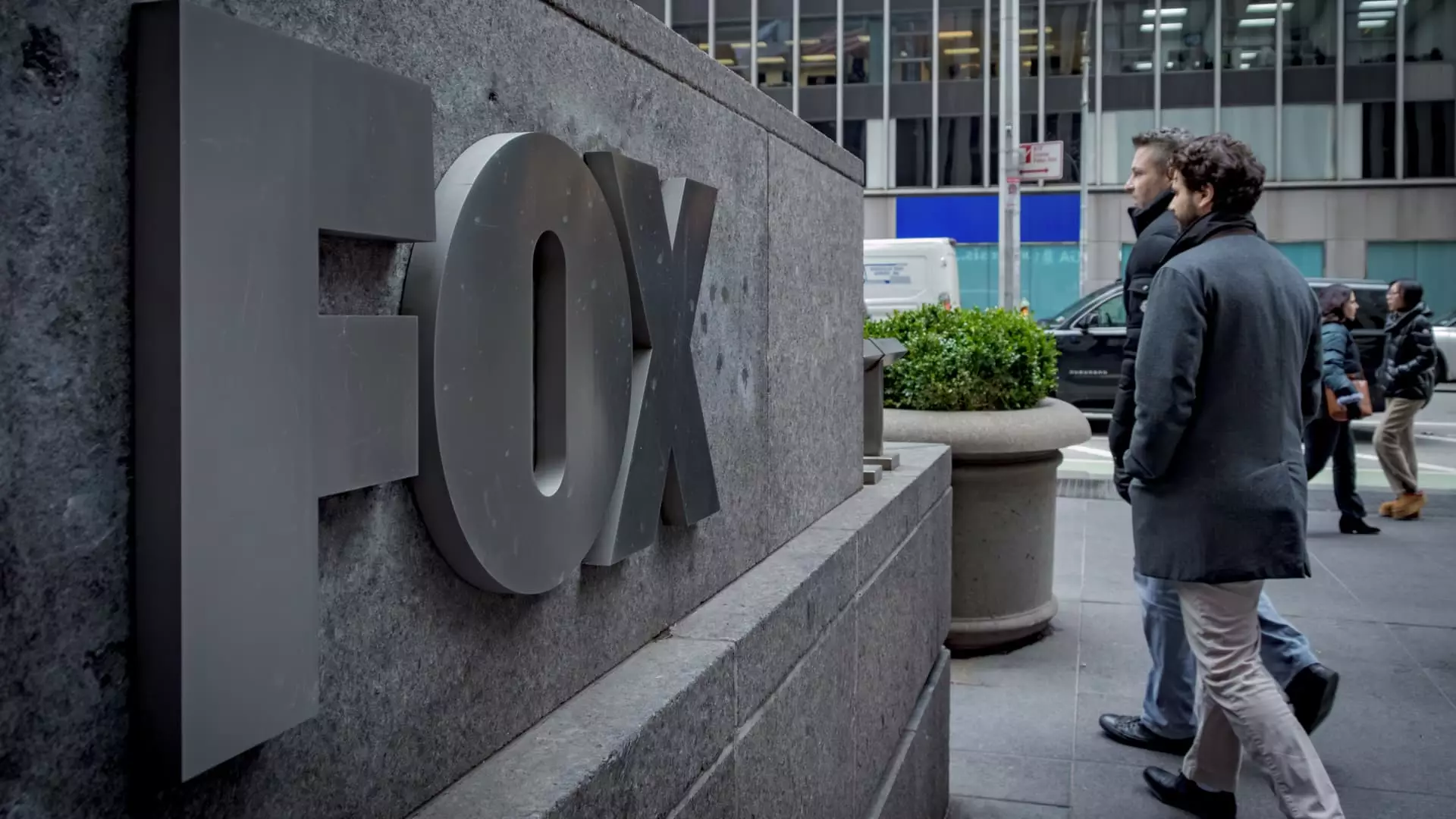In an era where streaming has become the dominant mode of content consumption, Fox’s cautious, almost hesitant approach with its upcoming service, Fox One, reveals a fundamental misunderstanding of the evolving media landscape. Rather than boldly leveraging its substantial sports and news assets to carve out a competitive streaming niche, Fox seems content to follow a conservative script rooted in minimal innovation. This stance, rooted in the desire to maintain the traditional pay-TV ecosystem, risks further alienating younger viewers and cord-cutters who prioritize flexibility and exclusive digital content.
By pricing Fox One at $19.99 a month without offering original or exclusive content, the company implicitly concedes that its core assets are insufficient to lure audiences solely on their own. It is a strategic misstep, as streaming success in today’s world demands more than just piping the same linear content onto a digital platform. Fox’s decision to stick with predominantly broadcast content—live sports like NFL and MLB, and established news programs—limits the service’s appeal. Instead of innovating with fresh, digital-first content, Fox is merely repackaging familiar fare, which risks making the platform irrelevant in a competitive market saturated with dynamic, exclusive offerings from Disney, Apple, and others.
A Failed Attempt at a Smart, Targeted Niche
Murdoch’s stated aim—to keep Fox One “very focused” and “targeted”—sounds sensible in theory but is painfully short-sighted in practice. Narrow targeting is vital, but only if it aligns with forward-thinking consumer trends. Fox appears to misunderstand that the streaming world favors diversity, innovation, and exclusive content over curated repetition of linear broadcasts. Its willingness to avoid original content stems from a desire to limit costs, but that choice might backfire by denying the company a chance to stand out in an increasingly crowded space.
Furthermore, Fox’s reluctance to heavily invest in sports rights or original digital content suggests an underestimation of the shifting power dynamics. The strategic landscape now heavily favors platforms that cultivate unique and compelling digital content, creating a loyal subscriber base willing to pay a premium. By sticking to a model that offers little beyond repurposed broadcasts, Fox risks becoming irrelevant in the streaming era. The lack of exclusive programming and original content essentially makes Fox One an extension of linear TV, an outdated concept in the digital domain.
Bundling and Market Positioning—A Half-Hearted Approach
Murdoch’s mention of bundling Fox One with other streaming services might seem like a prudent move, but it reveals a deeper confusion about market positioning. The tension between making content accessible and guarding the pay-TV ecosystem indicates that Fox is unsure whether to compete head-to-head with major streaming services or to operate as a supplementary offering. This indecisiveness might erode its potential to build a dedicated subscriber base that values its unique news and sports coverage.
Fox’s cautious approach to bundling and its omission of digital exclusives indicates a shortsighted focus on preserving traditional revenue streams rather than innovating for the future. The fact that Fox has already exited joint sports ventures like Venu further cements its cautious stance—yet it neglects that staying still in a dynamic environment equates to falling behind. The new ESPN service from Disney, priced at $29.99, exemplifies the market’s appetite for high-quality digital sports content, setting a strong benchmark that Fox’s modest offering cannot hope to match.
The Broader Implication: Traditional Media’s Resistance to Evolution
Ultimately, Fox’s approach underscores a broader inertia within traditional media conglomerates that are resistant to fully embracing the digital age. Rather than challenging the status quo with bold, competitive offerings, companies like Fox prefer incremental adjustments that—while financially safe—might ultimately prove them irrelevant in the long term. The company’s recent revenue gains, driven by existing assets like Tubi and news ratings, provide only short-term comfort. The real test lies ahead: whether Fox will adapt or continue clinging to a model that was already outdated well before its announcement of Fox One.
In the end, Fox One feels less like a strategic revolution and more like a cautious nod to the digital future. The company’s failure to commit fully to innovation risks marginalizing it further amidst a landscape that rewards disruptive, exclusive, and original content strategies. It is a missed opportunity to reshape its narrative from a traditional broadcaster into a relevant, nimble digital competitor capable of engaging today’s audience on their terms.


Leave a Reply